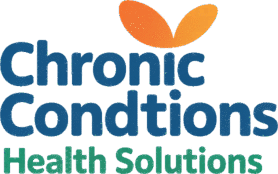Defining Early Detection & Chronic Diseases
Timely identification of diseases before severe progression. Chronic diseases are long-lasting conditions requiring ongoing medical attention.
- Diabetes
- Heart Disease
- Arthritis

Proactive health management can significantly improve outcomes for those facing chronic diseases. Have you considered how early detection could change your health journey?
Understanding the critical role of early detection and timely diagnosis in improving health outcomes for chronic conditions.
Timely identification of diseases before severe progression. Chronic diseases are long-lasting conditions requiring ongoing medical attention.
Early intervention improves management and minimizes complications. Reduces hospitalizations and enhances quality of life.
Lifestyle choices, genetic predispositions, and environmental influences contribute to chronic disease onset.
Recommended screenings based on age and risk factors for effective preventive healthcare.
Checks from age 18
Every 4-6 years (adults over 20)
Start at age 45 or with risk factors
Discuss with doctor (age/risk)
When it comes to managing chronic diseases, early detection is a crucial element that can significantly alter the trajectory of health outcomes. It’s important to understand that chronic diseases, such as diabetes, heart disease, and arthritis, are conditions that develop over time, and they can often be managed effectively if caught early. By recognizing these diseases sooner, we can implement strategies that may prevent complications and improve overall health.
Many people might not realize that early detection can sometimes mean the difference between effective management and severe health issues down the line. At Chronic Conditions Health Solutions, we emphasize the importance of understanding early detection as part of our mission to empower individuals living with chronic conditions. A proactive approach can lead to better management and a greater quality of life.
To grasp the significance of early detection, we first need to define what it means. Early detection refers to the timely identification of diseases before they progress to more severe stages. Chronic diseases, on the other hand, are long-lasting conditions that typically persist for more than three months. They often require ongoing medical attention and can limit daily activities.
Understanding these definitions helps us appreciate why monitoring our health regularly is vital. Many chronic diseases may not show symptoms initially, and that’s where regular screenings become invaluable.

Timely diagnosis plays a pivotal role in enhancing health outcomes. Research shows that early intervention can lead to better management and minimization of complications. For instance, individuals diagnosed with diabetes early can implement lifestyle changes and treatment plans that significantly reduce the risk of complications such as nerve damage or cardiovascular issues.
At Chronic Conditions Health Solutions, we advocate for early detection as a fundamental step in chronic disease management, encouraging our clients to stay proactive about their health.
Understanding the key risk factors for chronic diseases is essential in preventing their onset. Common risk factors include lifestyle choices, genetic predispositions, and environmental influences. By being aware of these factors, individuals can take proactive steps to mitigate their risks.
At Chronic Conditions Health Solutions, we emphasize the need for a holistic understanding of these factors. By addressing them through personalized lifestyle interventions, we can help clients navigate their unique health journeys more effectively.
Did you know? Regularly scheduling check-ups with your healthcare provider can significantly enhance your chances of early detection? Aim for at least one comprehensive health check-up each year, and don't hesitate to ask for specific tests based on your risk factors. Being proactive in your healthcare can lead to better management of chronic diseases!
Understanding the importance of early detection in managing chronic diseases is crucial for improving health outcomes. Timely interventions can significantly alter the trajectory of a patient's health journey. By catching diseases in their early stages, we can initiate effective management strategies that empower individuals to take control of their health. As I often emphasize at Chronic Conditions Health Solutions, proactive measures can lead to a more fulfilling life, even in the face of chronic illnesses!
Here are some key takeaways on the significance of early detection:
As we look ahead, the integration of technology in healthcare promises to enhance early detection methods. As a passionate advocate for evidence-based practices, I believe that the future of predictive healthcare will empower patients more than ever before.
Advancements in technology, especially in predictive analytics, are shaping the way we approach chronic disease management. I envision a future where patients have access to real-time data about their health, allowing them to make informed decisions. This empowerment leads to a more engaged patient population that prioritizes their well-being.
Moreover, the rise of personalized healthcare solutions can help tailor interventions based on individual risks and genetic factors. Imagine being able to access targeted programs that address your specific needs! This shift will not only improve outcomes but will also foster a sense of community and support among patients.
Advocating for regular screenings is a vital part of managing your health. At Chronic Conditions Health Solutions, we believe that every individual should feel empowered to discuss their health concerns with their healthcare providers. Here are some effective ways to advocate for yourself:
Taking charge of your health is a continuous journey, and being proactive about screenings can make a world of difference!

Finding the right resources for screening services can feel overwhelming, but I’m here to help. Here are some resources to consider when seeking support:
Utilizing these resources can enhance your overall experience and lead to better health outcomes. Remember, you don’t have to navigate this journey alone!
Staying informed about screening guidelines is crucial for effective preventive healthcare. As your advocate, I encourage you to familiarize yourself with the recommended screenings for your age and risk factors. This knowledge can empower you to take proactive steps.
Here's a quick overview of general screening guidelines:
By understanding and following these guidelines, you can make informed decisions about your health and ensure timely interventions that pave the way for a brighter future!
Here is a quick recap of the important points discussed in the article:
At Chronic Conditions Health Solutions, we're dedicated to transforming chronic disease management through personalized exercise physiology and evidence-based lifestyle interventions. Dr. Emilia Carter and our team empower you to achieve better health outcomes and a more fulfilling life. Your well-being is our priority.
